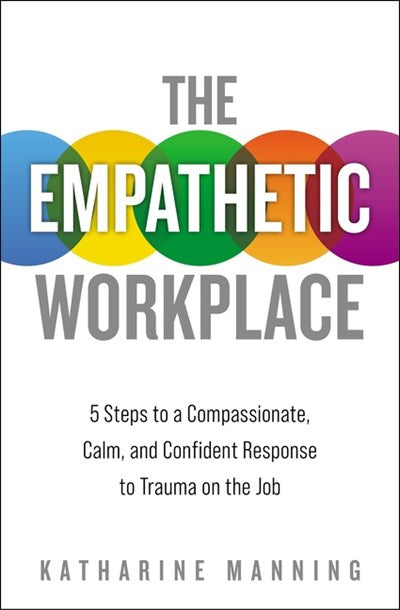This critical resource gives managers, HR, and anyone who may come into contact with someone in trauma---including workplace violence, harassment, assault, illness, addiction, fraud, bankruptcy, and more---the tools they need to be prepared for what lies ahead.
This critical resource gives managers, HR, and anyone who may come into contact with someone in trauma—including workplace violence, harassment, assault, illness, addiction, fraud, bankruptcy, and more—the tools they need to be prepared for what lies ahead.
This book is crucial for every manager or HR representative who shouldn’t just prepare to one day be faced with a report of a traumatic experience at work, but plan on it. This five-step method will help managers make survivors feel supported and understood. The Empathetic Workplace guides supervisors of any level through an understanding of how stories of trauma impact the brain of both the survivor and the listener, as well as the tools to handle the interaction appropriately, to help the listener, the organization, and most importantly, the survivor.
The easy-to-follow LASER method outlined in these pages includes the following elements that all managers should know and understand:
- Listen-Controlling your own reaction, managing your body language, asking open-ended questions, hearing what is not being said, and winding down the speaker when the conversation becomes unproductive are essential elements in being a good listener.
- Acknowledge-Once someone shares a difficult personal story with you, it is important to acknowledge that gift.
- Share-You can help the speaker regain some measure of control by sharing information with him or her about what happened or what happens next, your personal or organizational values, and what you don’t yet know but hope to learn.
- Empower-You can help the traumatized person by providing him or her with resources that are available to them through the company or outside groups.
- Return-The final step is to ensure that the traumatized person has a way to come back later when he or she cannot remember all that you said, thinks of more questions, or wishes for updates.
The LASER technique can benefit all who are responsible for others, from top-tier managers at Fortune 500 companies to Residence Advisors in college dormitories.

